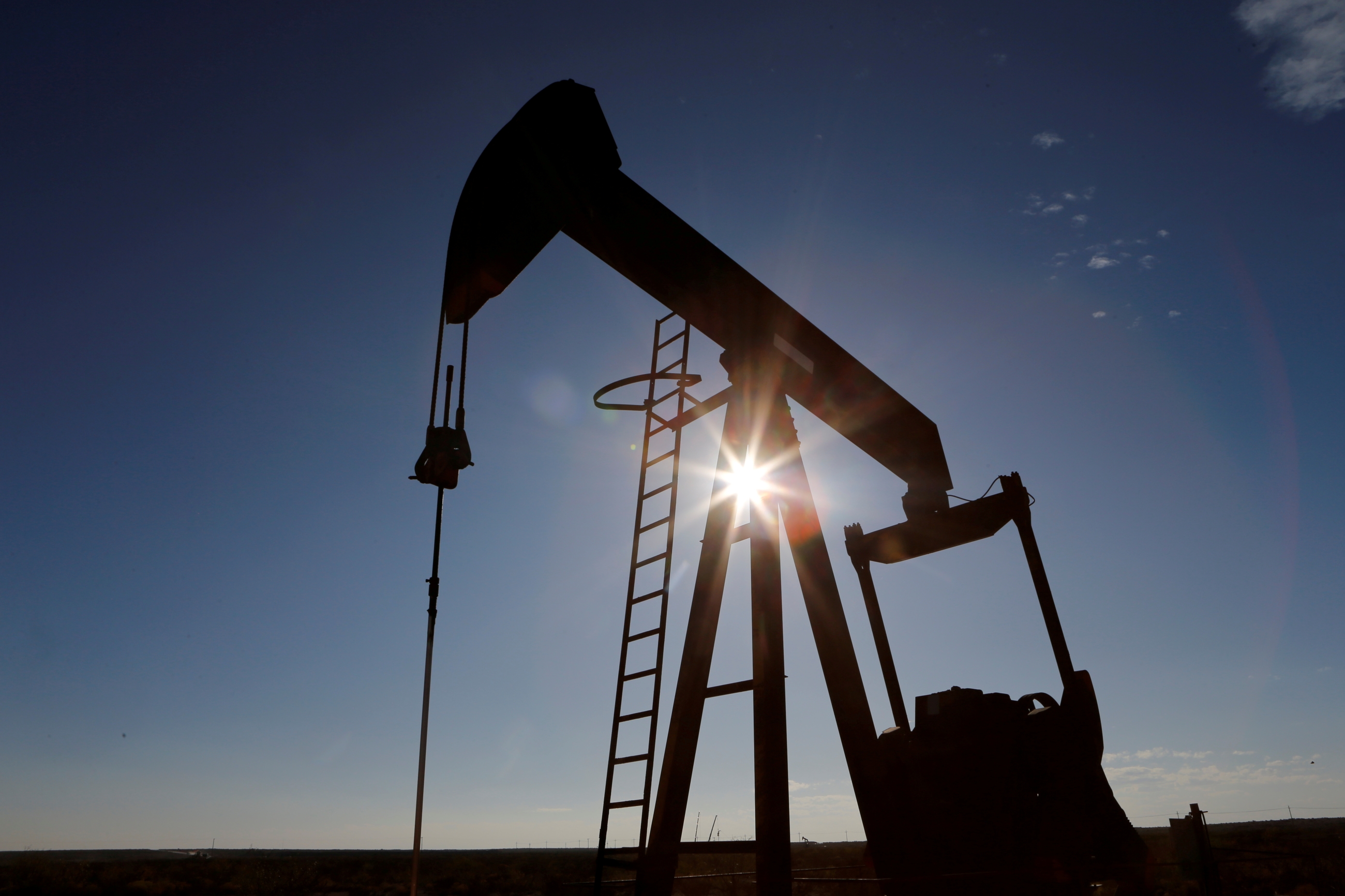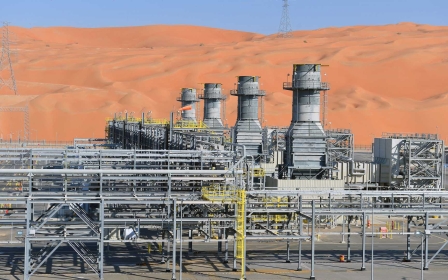Russia-Ukraine war: Oil price highest since 2008 over Moscow supply fears

World stock markets tumbled, metal prices reached record highs and oil neared an all-time peak on Monday amid widespread financial fallout from Russia's invasion of Ukraine.
Benchmark Brent North Sea crude oil soared to a near 14-year high, reaching $139.13 before cooling to $125.57. The record high stands at $147.50, achieved in 2008 during the global financial crisis.
New MEE newsletter: Jerusalem Dispatch
Sign up to get the latest insights and analysis on Israel-Palestine, alongside Turkey Unpacked and other MEE newsletters
Elsewhere, European gas prices struck record peaks on energy supply fears after the United States proposed an embargo on Russian crude.
Russia is one of the world's biggest crude producers and is also a leading supplier of natural gas.
The invasion has shaken up stock markets and energy sectors in the Middle East and North Africa.
For some countries in the region, high oil prices are an opportunity. For others, it will likely mean higher prices for essential goods and severe inflation.
The big hike in oil prices is negatively affecting Egypt, its petroleum minister Tarek El Molla was reported as saying by Sky News Arabia on Sunday.
"The whole world is harmed by the current oil prices, we hope these prices will not last for a long period... We hope gas exports compensate for part of the cost of importing oil and petroleum products," he was quoted as saying.
Iran uncertainty
Talks to revive oil-producer Iran's 2015 nuclear deal with world powers were mired in uncertainty over the weekend after Russia demanded a US guarantee that sanctions it faces over the Ukraine conflict would not hurt its trade with Tehran.
France told Russia on Monday not to resort to blackmail over efforts to revive the nuclear deal, while Iran's top security official said the outlook for the talks "remains unclear".
"Iran was the only real bearish factor hanging over the market but if now the Iranian deal gets delayed, we could get to tank bottoms a lot quicker, especially if Russian barrels remain off the market for long," said Amrita Sen, co-founder of Energy Aspects, a think tank.
Iran will take several months to restore oil flows even if it reaches a nuclear deal, analysts said.
On Sunday, the US news website Axios said that US President Joe Biden’s advisers were discussing a possible visit to Saudi Arabia this spring to help repair relations and convince the kingdom to pump more oil.
The report came after Crown Prince Mohammed bin Salman, Saudi Arabia's de facto leader, appeared to go out of his way to aggravate the White House during an interview with the Atlantic published last week.
“We don’t have the right to lecture you in America,” he said. “The same goes the other way.”
Red hot commodities
Commodities in general have been red hot since Russia's assault on its neighbour, with gold on Monday back above $2,000 an ounce thanks to the metal's status as a haven investment.
Aluminium, copper and palladium prices kicked off the week with record highs and nickel rocketed by more than 25 percent in value.
"Commodity and energy prices have inevitably been under upward pressure, with escalating sanctions against Russia and the shuttering of some Ukrainian ports driving the search for replacement supplies of crops, metals and energy," noted Richard Hunter, head of markets at Interactive Investor.
Ukraine, one of the world's top wheat producers, has set export restrictions on the crop and other agricultural products, the Interfax Ukraine news agency reported.
The conflict has pushed wheat prices higher as Russia is the world's top exporter of the cereal and Ukraine is the fourth according to US official estimates.
Egypt, the world’s top wheat importer, is witnessing a dramatic rise in the price of unsubsidised bread.
The country is one of several Middle Eastern countries, including Lebanon, Tunisia, Algeria and Turkey, that imports both Ukrainian and Russian wheat, and who are all bracing themselves for continuing price increases.
The price of Egypt's unsubsidised bread was up by 50 percent over the past week, amid the effects of the war and soaring insurance and freight costs.
Middle East Eye delivers independent and unrivalled coverage and analysis of the Middle East, North Africa and beyond. To learn more about republishing this content and the associated fees, please fill out this form. More about MEE can be found here.






